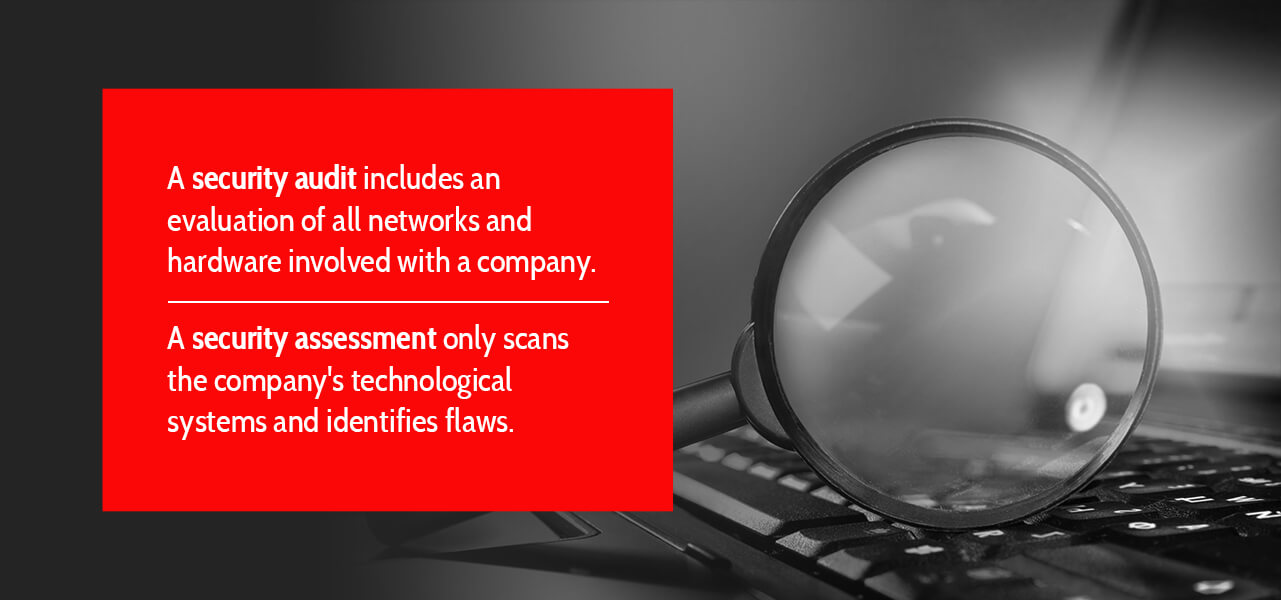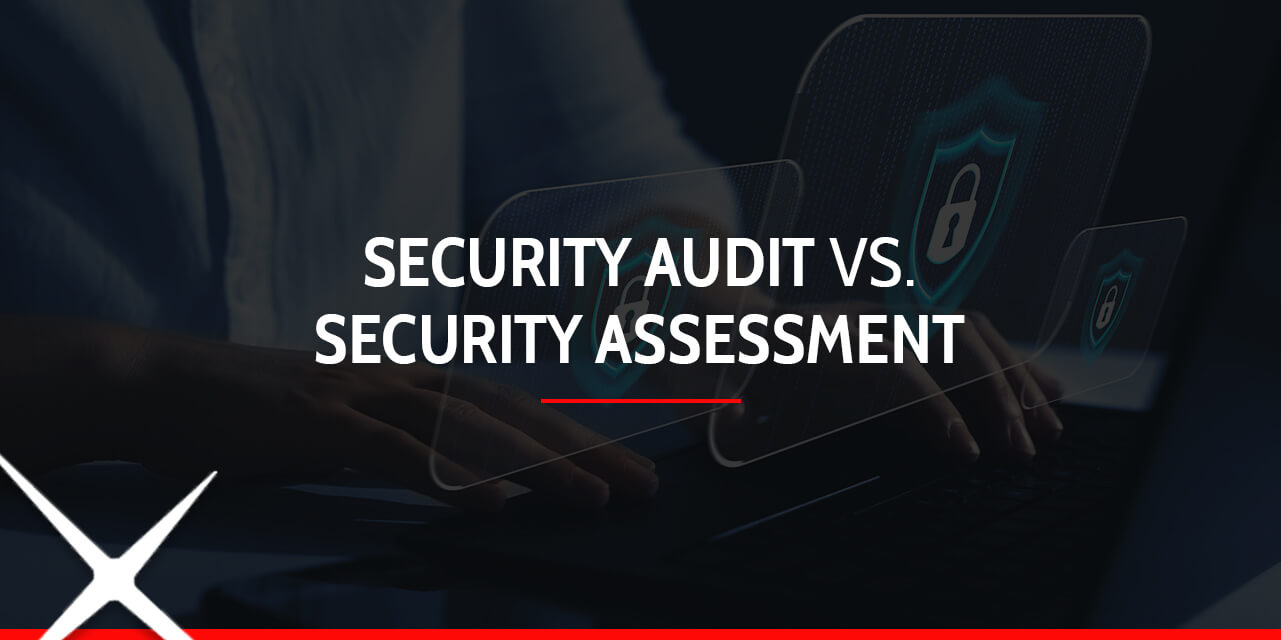It’s crucial to keep your computer systems and technology protected from security threats. As a company, your computer records hold critical information like financial records, business transactions and employee data. But with the increase in cyber-attacks and malware usage, it can sometimes be overwhelming to decide how to protect your systems best.
Many companies use security assessments and security audits to identify threats to their computer networks. These procedures analyze your current network setup and advise you on the best ways to maximize your security measures. But how does an IT audit differ from a security assessment, and which is better for your business?
Here is an overview of the differences between security audits and security assessments.
What Is a Security Audit?
First, a security audit is an in-depth investigation into an organization’s security system and IT infrastructure. The evaluation compares company security practices to industry standards or federal regulations. Then, it advises on areas that need remediation or improvement.
A typical security audit will review:
- Your company’s physical computer system and hardware.
- What software and applications you use.
- How your company sends and transmits information.
- Communication systems like email.
- Employee data or login information.
- Security systems already in place, like firewalls.
- Standard Operating Procedures.
- Disaster recovery plan.
Security audits also evaluate your IT infrastructure’s compliance with federal guidelines. They might check compliance with:
- HIPAA (Health Insurance Portability and Accountability Act)
- 201 CMR 17
- PCI-DSS (Payment Card Industry Data Security Standard)
- ISO (International Organization of Standardization)
- GDPR (General Data Protection Regulation)
Essentially, the audit looks extensively into all aspects of your business’s security and IT setup. During the review, technicians conduct real-time tests to check the strength of passwords, firewalls and other data protection tools.
Once a professional performs the review and the tests, they can help you devise a plan to address any problems with your security. You can implement this plan to ensure you stay protected from malware and cyber-attacks. The strategy will also inform you how to update your security measures to meet federal or industry compliance regulations.
What Is a Security Assessment?
Similarly, a security assessment, also known as a vulnerability assessment, examines a company’s technological systems. Then, it identifies problems or gaps within the security. After receiving assessment results, a technician can recommend how to address any lacks in security.
There are a variety of security assessments available, but they usually focus on one aspect of your system. For instance, here are examples of security assessment types:
- Network-based scans: This security assessment evaluates your network to detect vulnerabilities.
- Host-based scans: These scans analyze workstations and other host devices. They also look at configuration settings to ensure there are no attack risks.
- Application scans: Your business could also schedule an application assessment to evaluate your applications, like email or messaging software.
However, a security assessment differs from a security audit in many ways. A vulnerability assessment makes up one aspect of a security audit. While audits are comprehensive and cover all elements of a security system, assessments are often completed individually or only for one specific area. Audits also run tests and compare security measures to other federal compliance standards.
For example, if your company schedules a security audit, you might select a specific type of security assessment as part of the audit.

The essential difference between the two procedures is their span. A security audit includes an evaluation of all networks and hardware involved with a company. Instead, a security assessment only scans the company’s technological systems and identifies flaws.
Benefits of Both Procedures
Both security assessments by themselves and entire security audits provide many benefits for your company. Here are some ways that they provide advantages:
- Protect crucial data: Both vulnerability assessments and security audits help you gauge how well your data is protected. They can also advise you on the best ways to keep it even safer.
- Identify potential security gaps: The thoroughness of both procedures can inform you of potential lacks in your security that you might have missed.
- Create new security strategies: Technicians from both methods can assist you with making a stronger security strategy and even give tips on how to implement it.
- Stay on top of security trends: With consistent security evaluations, you can keep your company updated with current trends. You reduce the risk of cyberattacks, which saves you a lot of time and money in the long run.
Looking for a Security Assessment for Your Business?
Focus Technology Solutions has provided high-quality cybersecurity solutions for decades. From cloud-management services to data interpretation or anything in between, Focus Technology has the answer for you.
Our cybersecurity audit procedures follow a detailed plan of identification, defense and recovery. Our dedicated team can work with you to find the security solution that’s best. Whether you need a comprehensive leadership team to handle your security systems or assistance with only one aspect of your tech, Focus Technology can help.
Contact Focus Technology today for a complimentary security assessment.

